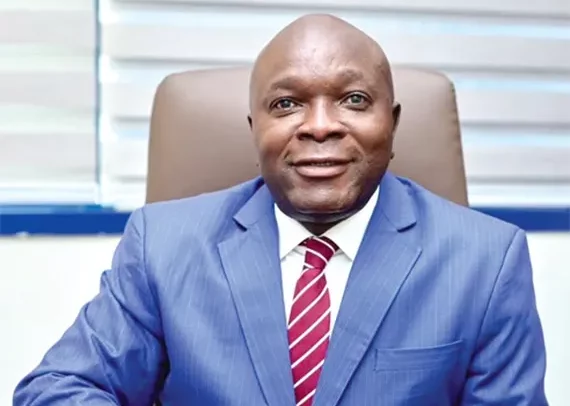Each year, Ghana celebrates the call to the Bar of hundreds of new lawyers in what has become a recurring moment of prestige, pride, and perseverance.
Legal education has become a national obsession, with thousands striving to enter law faculties and the Ghana School of Law. The Attorney-General and Minister for Justice, Dr. Dominic Akuritinga Ayine’s ongoing reforms — abolishing the Ghana School of Law’s monopoly and decentralising legal training — promise to open the doors even wider.
Yet, as we celebrate the rise of lawyers, we must confront a sobering truth: Ghana is not producing enough engineers, doctors, scientists, and technicians — the very professionals who build the real economy that sustains litigation.
Ghana currently has about 11,000 lawyers, with roughly 8,000 actively practising, translating to about one lawyer for every 2,000 citizens. Meanwhile, some engineering and science departments in our universities graduate fewer than ten students annually. This imbalance is not merely academic; it is existential — and it speaks volumes about our national development priorities.
While many have offered theories to justify this anomaly, one truth remains: we cannot litigate our way to development.
A courtroom victory does not build a bridge. A legal argument does not irrigate a farm. A brilliant submission before a judge will not turn poisoned rivers back into sources of life. Neither will it establish a business or employ the hundreds of graduates idling about.
Exodus of Critical Professionals
While the legal profession enjoys steady, if not excessive, replenishment, Ghana is bleeding its most essential talent.
A recent study found that 71.8 percent of Ghanaian doctors intend to emigrate, with the United States, United Kingdom, and Canada as top destinations. The reasons are painfully familiar: poor working conditions, low pay, slow career progression, and limited postgraduate opportunities.
According to the International Council of Nurses, Ghana loses between 400 and 500 nurses every month to emigration. Even though the country’s health workforce density has doubled in two decades, from 16.56 to 41.92 per 10,000 people, many professionals remain unemployed due to fiscal constraints, while others leave for better opportunities abroad.
In effect, we are spending scarce resources to train healers who heal other nations and builders who build elsewhere. Yet, we continue to produce more lawyers to argue over what we have failed to construct.
Engineers Built Nations
Nations that transformed their economies did so by prioritising engineering and technical professions.
- Singapore rose from third-world to first-world status by investing heavily in engineering, technology, and research.
- China produces millions of engineers annually, fuelling its rise as a global manufacturing and technology powerhouse.
- South Korea made engineering a prestigious career, central to its industrial revolution.
- Germany and Japan built global reputations on engineering excellence and vocational training.
These nations did not build their futures on legal arguments alone — they built them on bridges, railways, software, and factories.
Ghana, therefore, must re-evaluate its educational priorities to stop starving vital sectors such as agriculture, mining, construction, energy, and manufacturing — the true engines of growth, job creation, and national wealth.
Despite these sectors being the heart of the economy, technical and vocational education remains underfunded and misaligned.
An August 2025 UNICEF study revealed that only one out of 57 TVET institutions in the Ashanti Region offers agricultural training despite high demand. ICT training remains similarly scarce. The Commission for Technical and Vocational Education and Training (CTVET) warns of a widening skills mismatch and infrastructure strain due to rising enrolment without corresponding investment.
Lawyers Need the Real Economy
Let me emphasise that I understand the value of legal education. I assembled a formidable legal team to defend myself through nearly eight years of persecution. I am, therefore, not against the training of more lawyers.
However, I, like many others, believe Ghana must be more deliberate in nurturing the professionals who build the economy.
Lawyers are indispensable, but they thrive only when the economy thrives. They draft contracts for factories, negotiate mergers for businesses, and litigate disputes in mining, tech, banking, and manufacturing. Without a vibrant real sector, the legal profession has fewer cases to handle — apart from crimes born out of economic hardship or political persecution like what I endured.
That is why Ghana must rebalance its national priorities.
We must make it just as prestigious to be a neurosurgeon, robotics engineer, or renewable energy expert as it is to be a lawyer. We must invest in technical education, align curricula with industry needs, and retain our critical professionals. We need champions for open, merit-based medical and technical education — just as Professor Stephen Kwaku Asare has been for reforming legal education.
Let us not become a nation of brilliant litigators arguing over broken systems.
Let us not raise generations of lawyers to defend what we failed to build.
Let us not celebrate the courtroom while our clinics are empty, our roads unfinished, and our industries underdeveloped.
Let us expand the real economy so that the lawyers we train have industries to advise, contracts to draft, and deals to close.
Let us build a Ghana where prestige meets productivity, where law serves industry, and where education fuels transformation.
Let us reprioritise. Rebalance. And build — starting now.
The writer is a businessman and philanthropist.
By Alhaji Seidu Agongo


